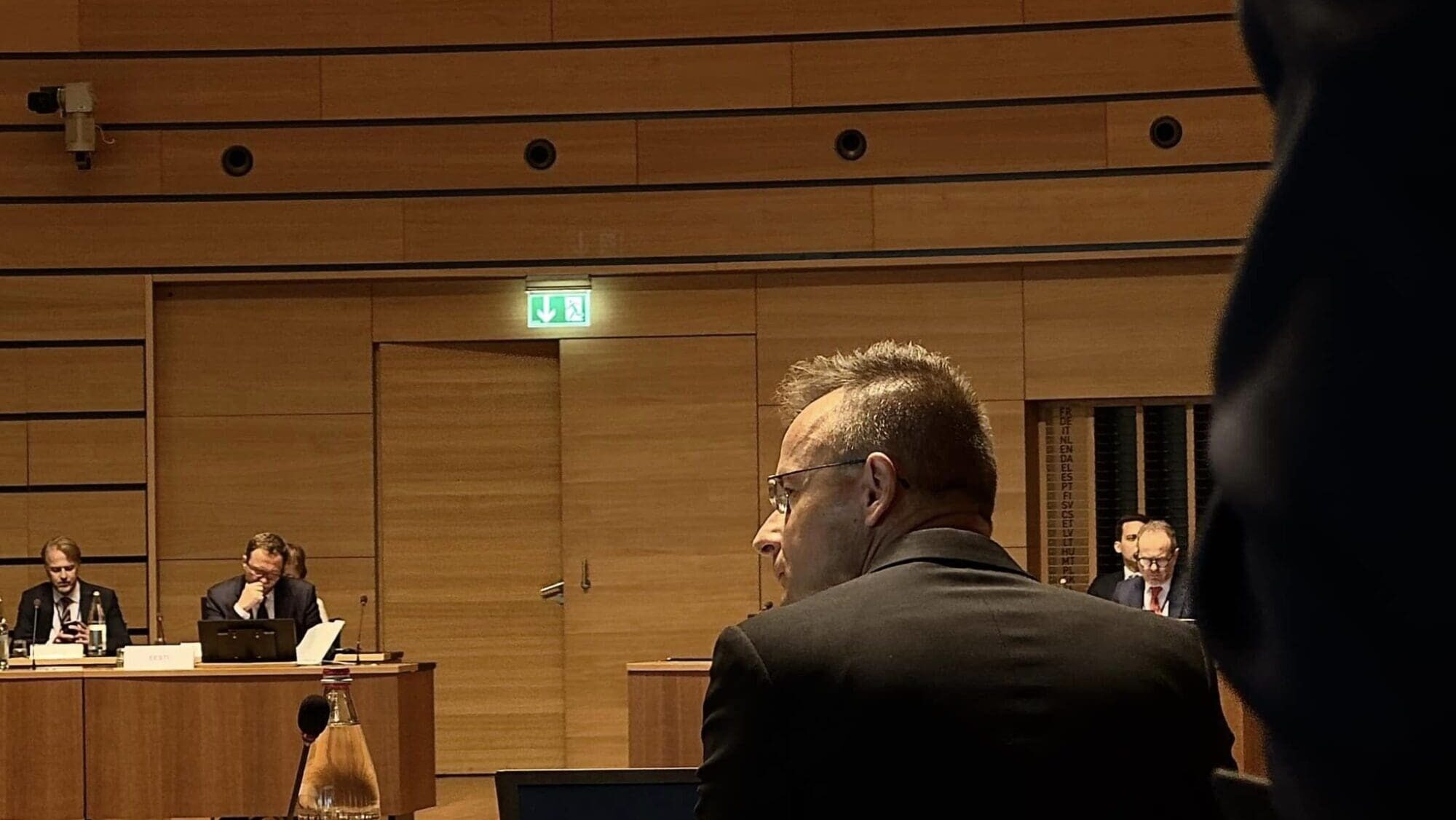
The EU has agreed to circumvent Hungary in order to buy more weapons for Ukraine. Hungarian Foreign Minister Péter Szijjártó was outraged at the move which he says breaks European rules as it does not take into account that foreign affairs decisions have to be taken unanimously.
At a meeting of EU foreign affairs ministers on Monday, June 24th in Luxembourg, member states agreed to use the profits generated by Russia’s frozen assets to buy weapons for Ukraine. The first tranche of proceeds that the EU will have access to is worth €1.4 billion. “The money will come next week. … This money is for military support to Ukraine,” the EU’s foreign policy chief Josep Borrell said on Monday.
Following Russia’s invasion of Ukraine in 2022, Western countries froze Russian bank accounts, real estate properties, stocks, bonds, luxury assets, and various investments held by Russian entities and oligarchs. The funds also involve around €275 billion in central bank assets across the EU, the United States, Japan, and Canada. The biggest share of these assets, €210 billion, is held within the EU. EU leaders agreed in March on using the profits that Russian assets generate, estimated to be worth up to €3 billion a year. The European Commission has proposed transferring 90% of the profits to finance arms for Kyiv; the other 10% would go to budget aid for the war-torn country.
Hungary, a country which has vetoed a number of EU decisions involving Ukraine, and has been the only EU member state since the outset of the war to reject sending weapons, had been blocking the use of Russian profits for buying weapons. Hungary has also refused for the EU to give €6.5 billion worth of arms deliveries to Ukraine through the so-called European Peace Facility, angering other member states.
Josep Borrell said EU officials believed they had found a way to approve the measures without needing the consent of any member country, despite the fact that EU decisions on foreign policy require the unanimous backing of all 27 member states. “We have a legal procedure in order to avoid any kind of blockage,” he said on Monday. The European Council’s legal service argued that Budapest cannot stop these payments because it abstained in the vote earlier this year creating the so-called Ukraine Assistance Fund through which the money is channeled to Ukraine.
In a post on Facebook Hungarian Foreign Minister Péter Szijjártó wrote: “Billions more for Ukraine —this time by breaking European rules and leaving Hungary out.” Later, at a press conference the minister said that “the EU has begun crossing red lines,” the decision was made without Hungary’s consent. Szijjártó criticised the EU for this “unprecedented violation of common European rules,” accusing proponents of hypocrisy for advocating the rule of law and democratic values while breaking the rules themselves.
❌FM Péter Szijjártó stated that the EU has begun crossing red lines by allocating an additional €1.4 billion for arms shipments to Ukraine and proposing the deployment of military trainers to the country. He emphasized that this decision disregards Hungary's decision-making… pic.twitter.com/SatQhsrcBN
— Zoltan Kovacs (@zoltanspox) June 24, 2024
Speaking to the Financial Times, Borrell said Brussels had offered Hungary an opt-out: “We have offered Hungary: your money will not be used to support Ukraine in any means. Not just lethal, but on anything. Take your money. Put your money out of the box. I don’t want to use your money.” But Hungary had said no, he added, saying Budapest’s position “has something to do with the strong links that they have with Russia.”
The contrary is actually true: Hungary has argued that sending weapons is only fuelling the war, and that the EU should be focusing on diplomatic solutions to end the conflict.
In a recent interview with the daily Magyar Nemzet, Prime Minister Viktor Orbán argued that both the EU and NATO are propelling themselves into a direct confrontation with Russia:
Let’s take a look at the position of the European powers two years ago and where we stand now. Earlier, Germany said that they were only sending helmets and categorically rejected the shipping of weapons. Today, German-made tanks are darting around in Ukraine and there is talk of transferring air defence systems. Discussions today are about whether German soldiers should enter Ukrainian territory within the NATO framework. This is how we have gone from helmets to direct confrontation.
